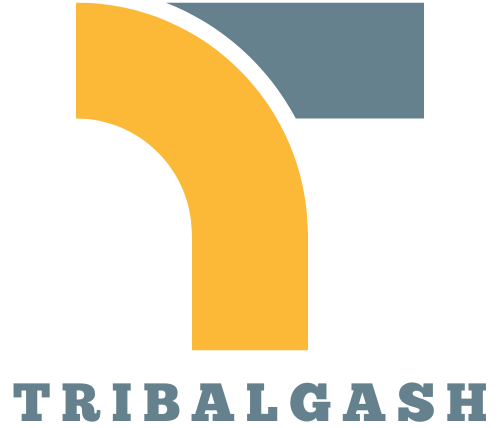In today’s fast-paced world, managing debt can feel overwhelming. With rising living costs and unexpected expenses, many find themselves trapped in a cycle of borrowing. Understanding effective debt handling strategies is crucial for regaining financial stability and peace of mind.
This article explores essential insights into debt management, offering practical tips and proven methods to tackle outstanding balances. From budgeting techniques to negotiating with creditors, readers will discover actionable steps to take control of their financial future. Whether facing student loans, credit card debt, or medical bills, these insights can empower anyone to make informed decisions and pave the way toward a debt-free life.
Table of Contents
ToggleOverview of Debt Handling Insights
Debt management involves understanding strategies to effectively handle financial obligations. Rising living costs and unexpected expenses create challenges that require practical solutions. Key insights into debt handling include the importance of budgeting, prioritizing expenses, and identifying the types of debt.
Budgeting Techniques
Budgeting forms the foundation of debt management. Monitoring income and expenses helps identify spending patterns and areas for reduction. Using tools like spreadsheets or budgeting apps simplifies tracking and fosters accountability. A 2022 study from the National Endowment for Financial Education indicated that 70% of individuals who followed a budget reported improved financial health.
Prioritizing Expenses
Prioritizing expenses ensures funds are directed toward essential payments. Focus on covering necessities such as housing, utilities, and food before discretionary spending. Allocating surplus funds towards high-interest debts leads to faster repayment and reduces total interest paid over time.
Negotiating with Creditors
Negotiating with creditors can alleviate financial strain. Strategies include requesting lower interest rates, establishing payment plans, or resolving debts for less than owed. Research from the Consumer Financial Protection Bureau shows that 30-50% of consumers who negotiate successfully lower their debt burden.
Understanding Types of Debt
Different types of debt impact financial health in various ways. For instance, student loans and credit card debts often have different interest rates and repayment terms. Recognizing these distinctions helps in devising personalized repayment strategies. Focusing on high-interest debts first often results in significant savings and quicker progress towards financial stability.
Utilizing Professional Assistance
Professional assistance, such as credit counseling, offers valuable support in debt management. Certified credit counselors provide personalized plans and tools for managing debt. An online survey by the Association of Independent Credit Counseling Agencies noted that about 80% of participants experienced less stress when working with credit counselors.
Common Types of Debt

Understanding the different types of debt is crucial for effective management. Each type carries unique characteristics and implications for the borrower.
Secured Debt
Secured debt is backed by collateral, which reduces the lender’s risk. Common examples include mortgages and auto loans. In these cases, the borrower offers their home or vehicle as security for the loan. If payments are missed, lenders can seize the collateral. Secured debt typically features lower interest rates than unsecured debt, making it an appealing option for many borrowers. However, this type of debt requires careful consideration, as losing the asset can have significant consequences.
Unsecured Debt
Unsecured debt lacks collateral and poses a higher risk to lenders. Common examples include credit card debt, personal loans, and medical bills. Since there’s no asset backing the loan, interest rates on unsecured debt often rise to compensate for the increased risk. Borrowers facing financial difficulties might find unsecured debt more challenging to manage. While it does not involve immediately losing an asset, failure to repay can lead to severe consequences, such as damaged credit scores and legal action.
Strategies for Effective Debt Management
Effective debt management requires proactive strategies. Implementing these methods can significantly improve one’s financial situation.
Creating a Budget
Creating a budget serves as a crucial component of debt management. Individuals can track income and expenses, ensuring better allocation of funds. To develop an effective budget:
- Identify Income Sources: Include all reliable sources of income, such as salaries or side jobs.
- List Fixed Expenses: Document regular monthly expenses, including rent, utilities, and insurance.
- Include Variable Expenses: Account for fluctuating costs, such as groceries and entertainment.
- Set Savings Goals: Allocate a portion for savings. Even small contributions can build a financial buffer.
- Monitor Progress: Review the budget monthly. Adjust as necessary to reflect changes in income or expenses.
Studies indicate that individuals who maintain and adhere to budgets experience greater financial stability and reduced anxiety regarding debt.
Prioritizing Debt Payments
Prioritizing debt payments enhances efficiency in managing obligations. Strategically addressing debts can lead to significant savings in interest and time. To prioritize effectively:
- List All Debts: Document each debt, including the total amount, interest rate, and minimum monthly payment.
- Focus on High-Interest Debts: Prioritize debts with the highest interest rates. Paying these off first reduces total interest paid over time.
- Consider the Snowball Method: Alternatively, individuals can tackle smaller debts first. This method builds momentum and motivation through quick wins.
- Ensure Minimum Payments: Always make at least the minimum payments on all debts to avoid penalties and protect credit scores.
- Reassess Regularly: Periodically review debts and payments. Adjust priorities as needed based on changes in financial circumstances.
By implementing these strategies, individuals can manage their debts effectively and work towards financial stability.
The Role of Credit Counseling
Credit counseling serves as a valuable resource for individuals grappling with debt. It offers professional guidance tailored to one’s unique financial situation. Through credit counseling, clients can receive personalized plans aimed at improving financial literacy and managing debt more effectively.
Certified credit counselors analyze clients’ financial standing, including income, expenses, and outstanding debts. They provide actionable recommendations, such as budgeting techniques and debt repayment strategies. With expert knowledge, credit counselors help individuals understand how to prioritize debts based on interest rates and terms.
Additionally, credit counseling services often include debt management plans (DMPs). DMPs consolidate payments into a single monthly amount payable to the counseling agency, which then distributes funds to creditors. Research indicates that individuals who utilize DMPs often experience lower interest rates and waived fees, making repayment more manageable.
Engaging in credit counseling fosters accountability. Regular sessions encourage individuals to discuss progress and adjust financial strategies as necessary. Maintaining this dialogue enhances financial awareness, leading to more informed decisions regarding spending and saving.
Lastly, credit counseling services typically offer educational resources. These resources, including workshops and online tools, empower individuals with the knowledge they need to avoid future debt. Understanding financial principles helps create lasting habits conducive to long-term financial health.
Tools and Resources for Debt Handling
Numerous tools and resources exist to aid individuals in managing their debt effectively.
Budgeting Apps
- Mint: Mint offers budgeting tools that allow users to track their spending, set financial goals, and receive bill reminders. Its features promote awareness of financial habits.
- You Need A Budget (YNAB): YNAB focuses on proactive budgeting, encouraging users to allocate every dollar and prioritize their financial objectives.
- EveryDollar: This app simplifies budgeting by providing easy-to-use templates, making it accessible even for beginners.
Online Calculators
- Debt Payoff Calculator: This tool helps users determine the fastest way to pay off debts based on various strategies, such as the avalanche or snowball methods.
- Budget Calculator: A budget calculator assists in estimating monthly income and expenses, allowing users to adjust their budgets effectively.
Financial Education Resources
- National Foundation for Credit Counseling (NFCC): NFCC offers resources for financial education, including workshops and counseling services focused on debt management.
- Consumer Financial Protection Bureau (CFPB): The CFPB provides articles and guides on understanding debt, managing credit, and making informed financial decisions.
Credit Counseling Services
- Nonprofit Credit Counseling Agencies: These agencies provide personalized debt management plans and financial education. They offer guidance on budgeting and negotiating with creditors, helping clients reduce stress.
- Debt Management Plans (DMP): DMPs consolidate monthly payments into more manageable amounts, allowing individuals to pay off debts systematically under professional supervision.
Support Groups
- Debtors Anonymous: This group offers peer support for individuals struggling with compulsive spending and debt. Participants share experiences and strategies to promote accountability.
- Local Community Resources: Community organizations often provide workshops and seminars aimed at improving financial literacy and offering debt management tips.
By utilizing these tools and resources, individuals can navigate their financial challenges more effectively and work toward achieving a debt-free life.
Navigating the complexities of debt management requires a proactive approach and a solid understanding of one’s financial landscape. By implementing effective budgeting strategies prioritizing essential expenses and negotiating with creditors, individuals can take significant steps toward financial stability.
Utilizing available resources like budgeting apps and credit counseling services can further enhance one’s ability to manage debt effectively. These tools not only simplify the process but also empower individuals with the knowledge needed to avoid future pitfalls.
With dedication and the right strategies in place anyone can work toward achieving a debt-free life and reclaiming their financial well-being.









